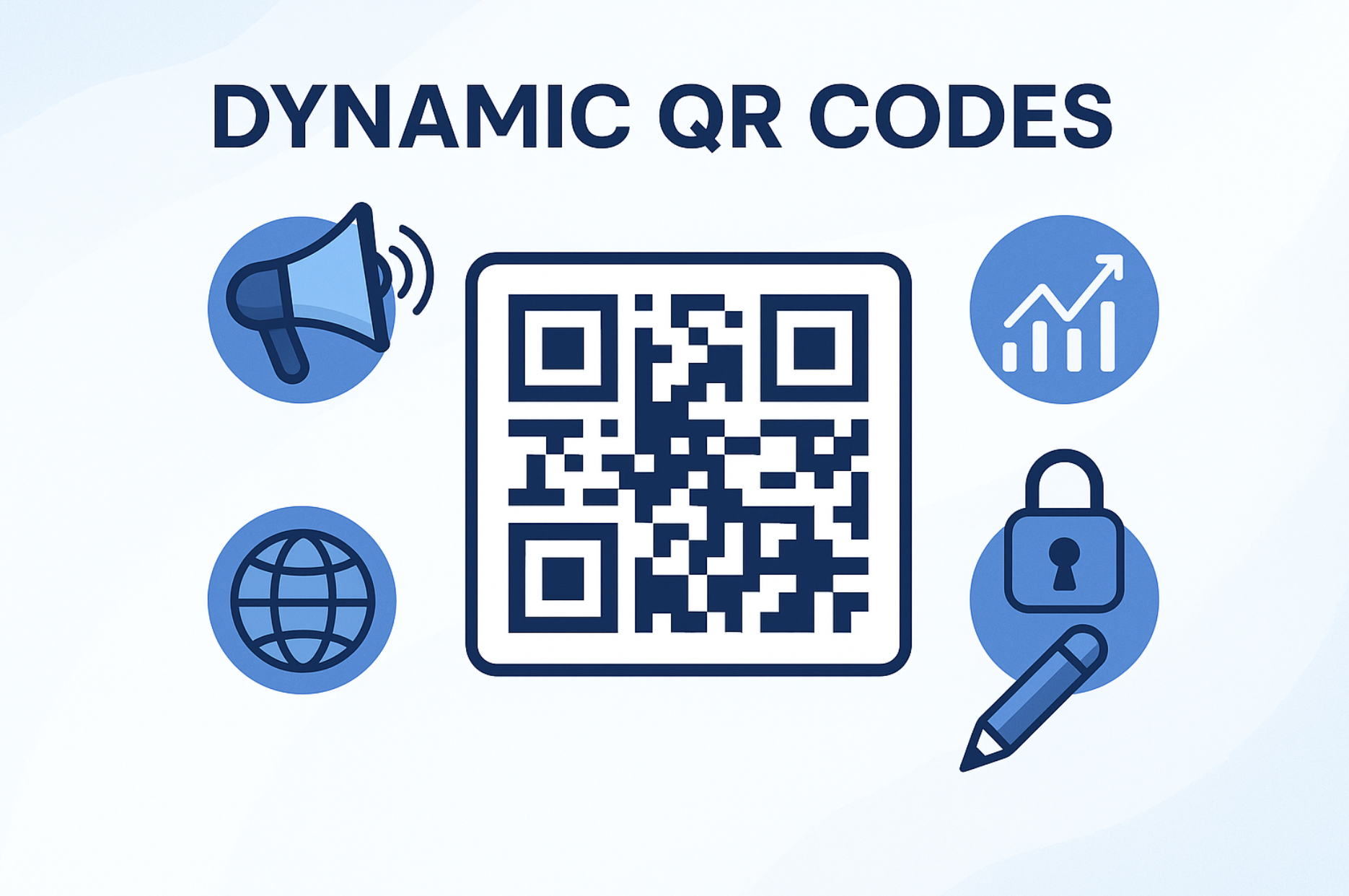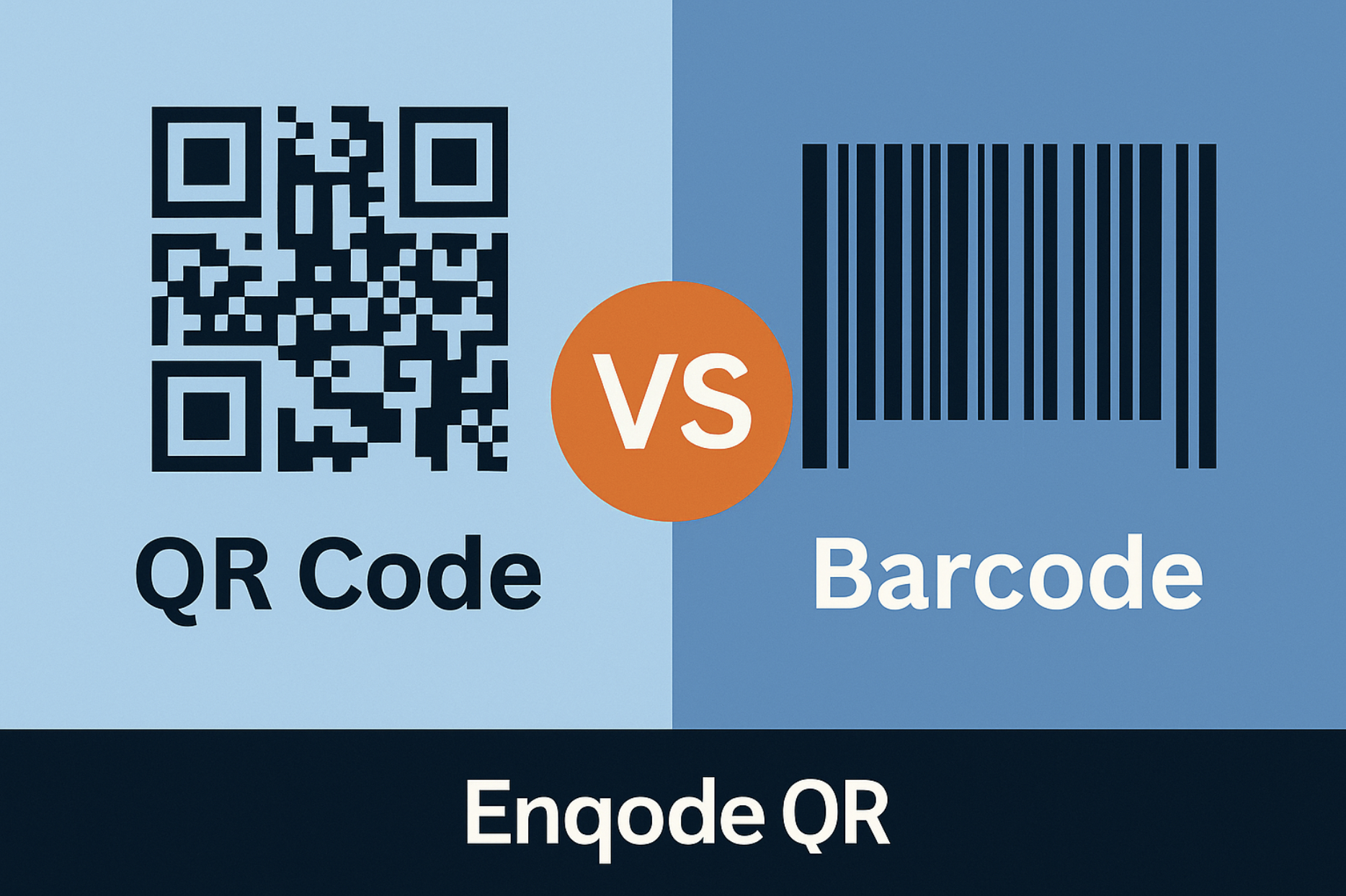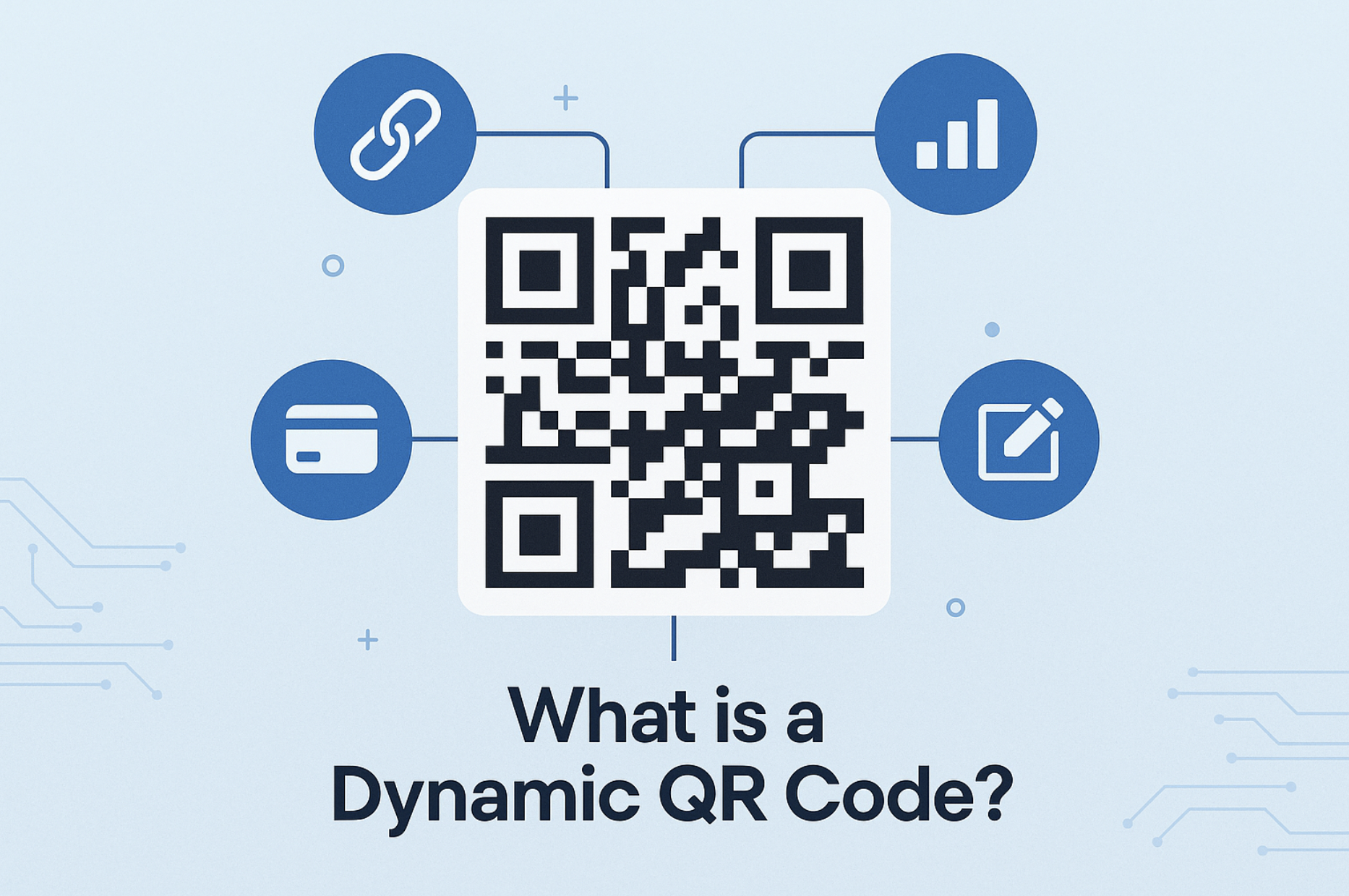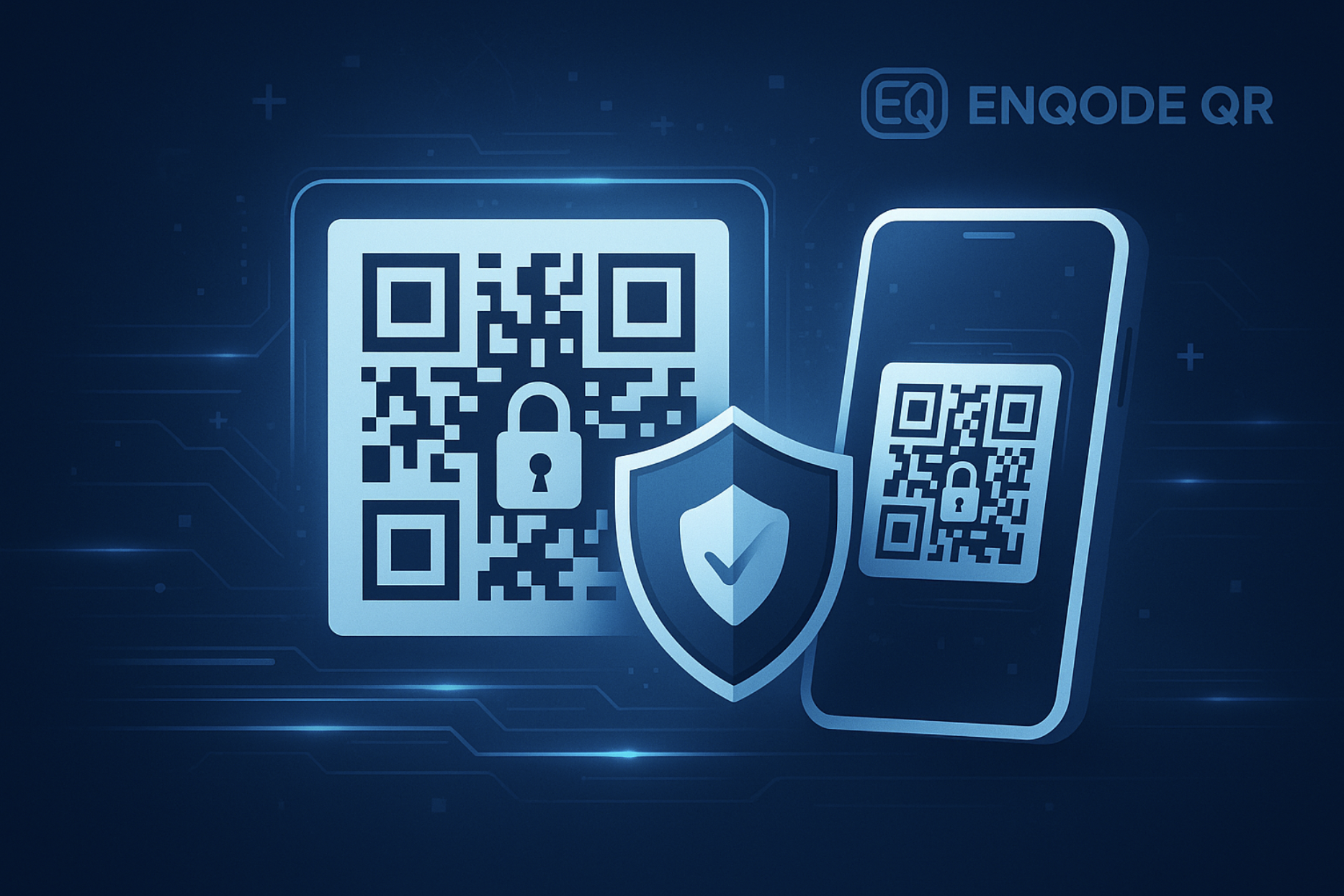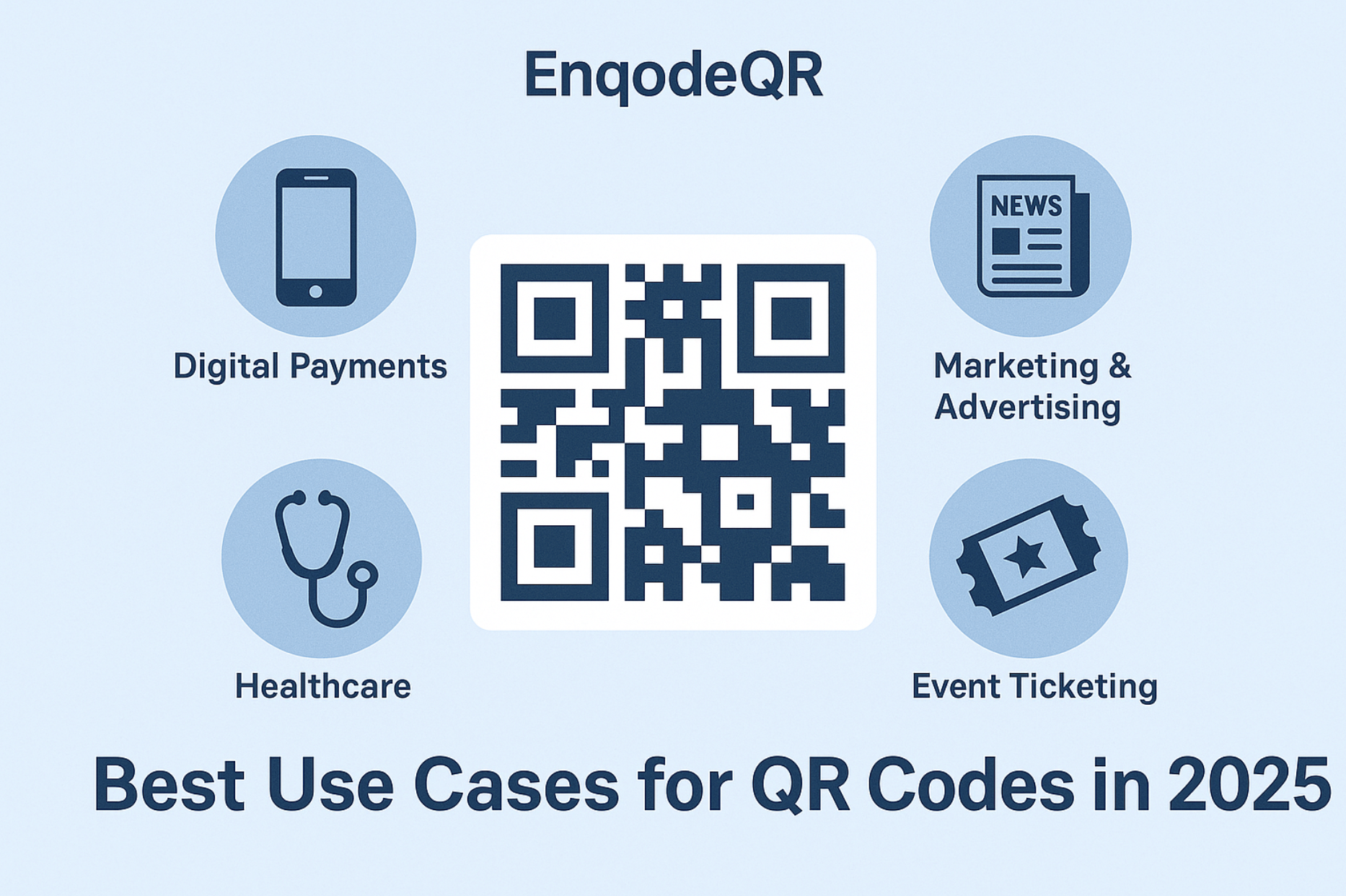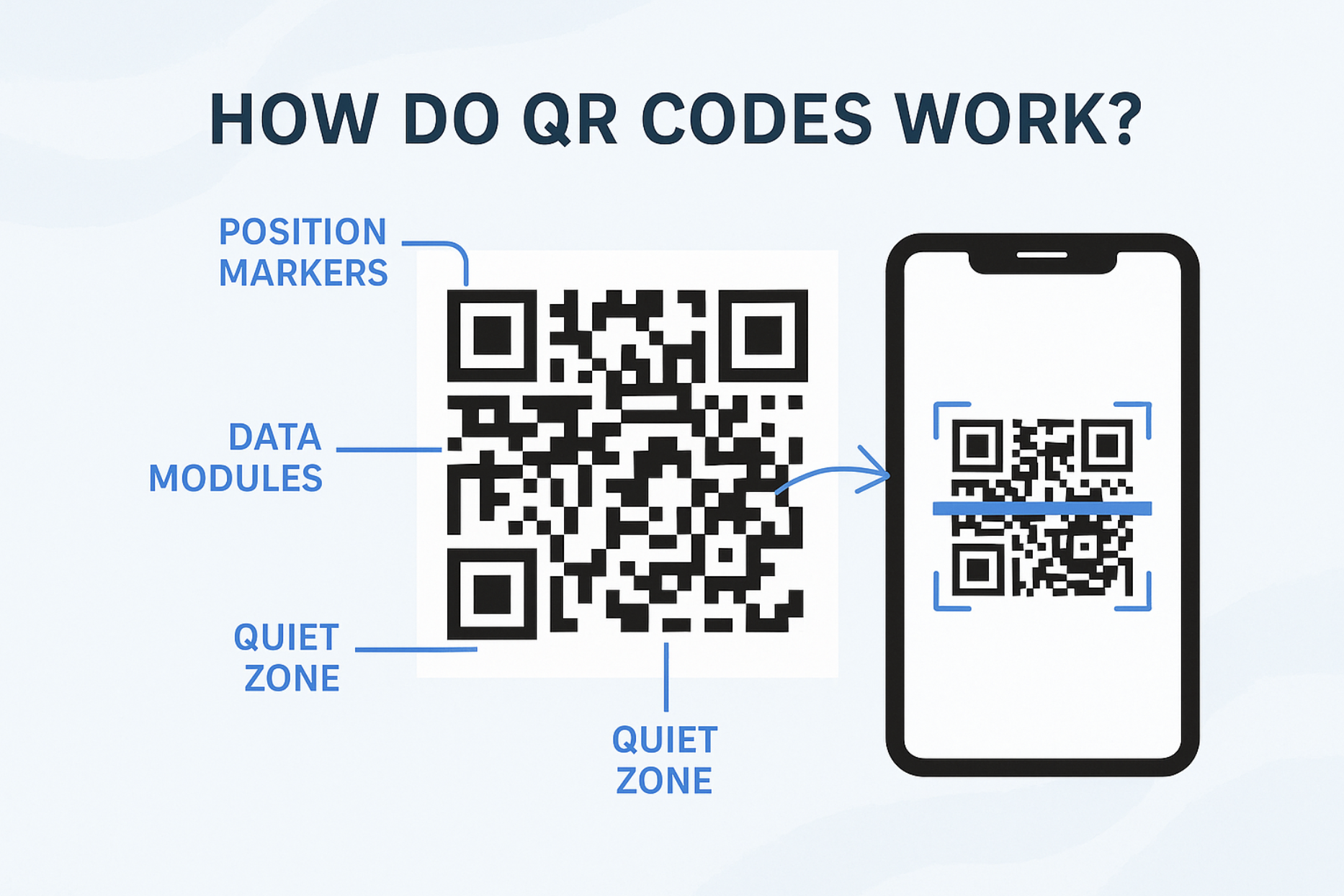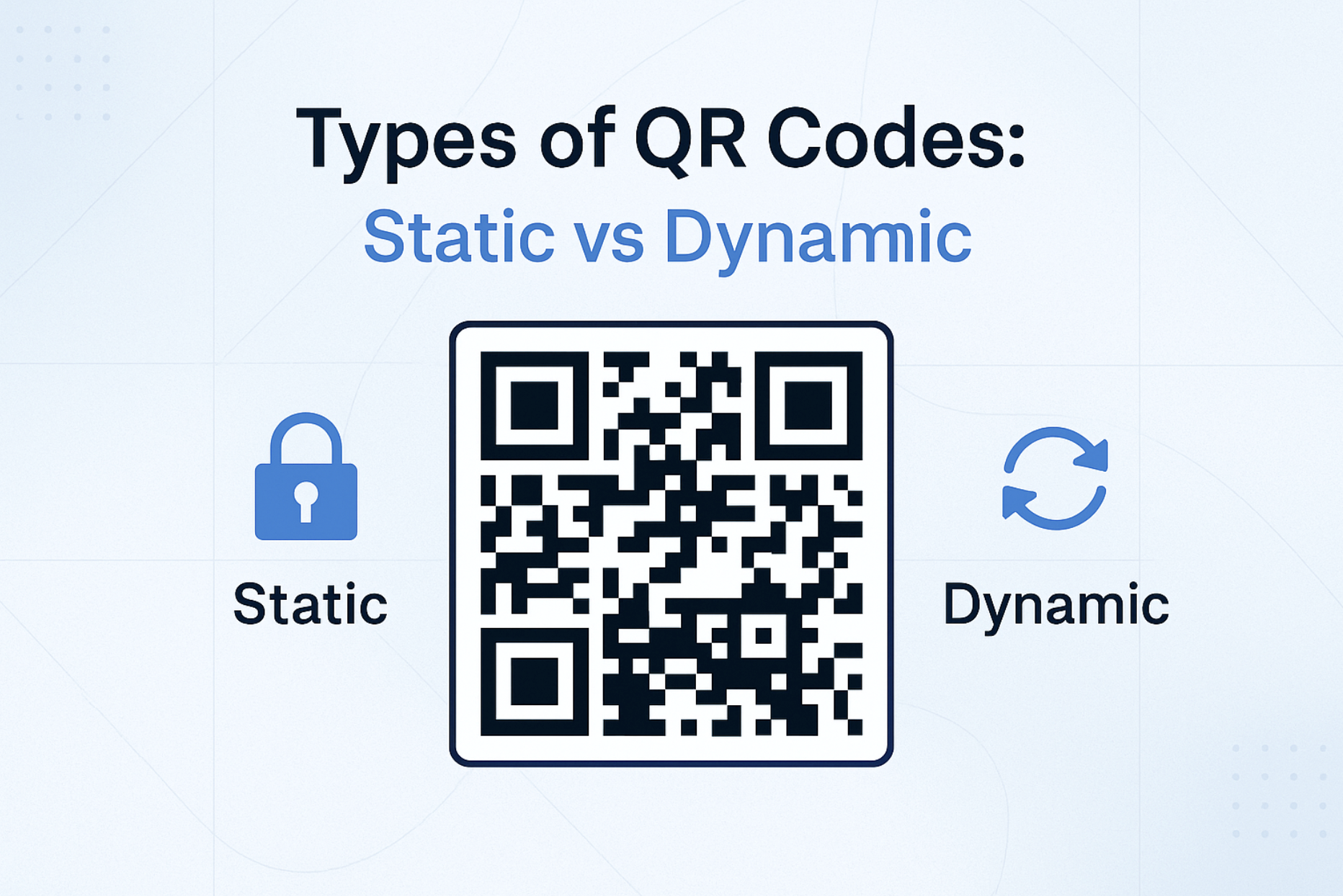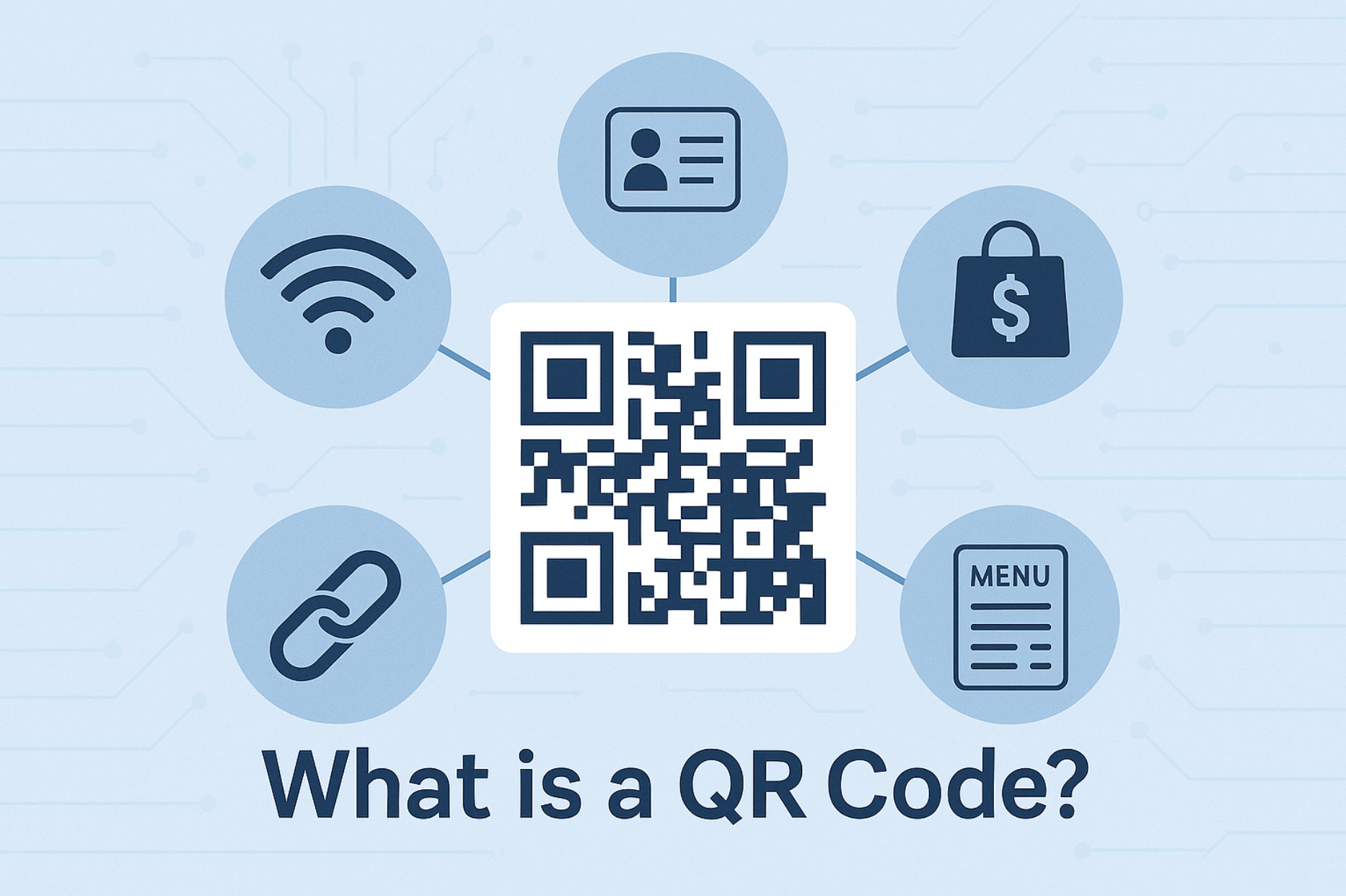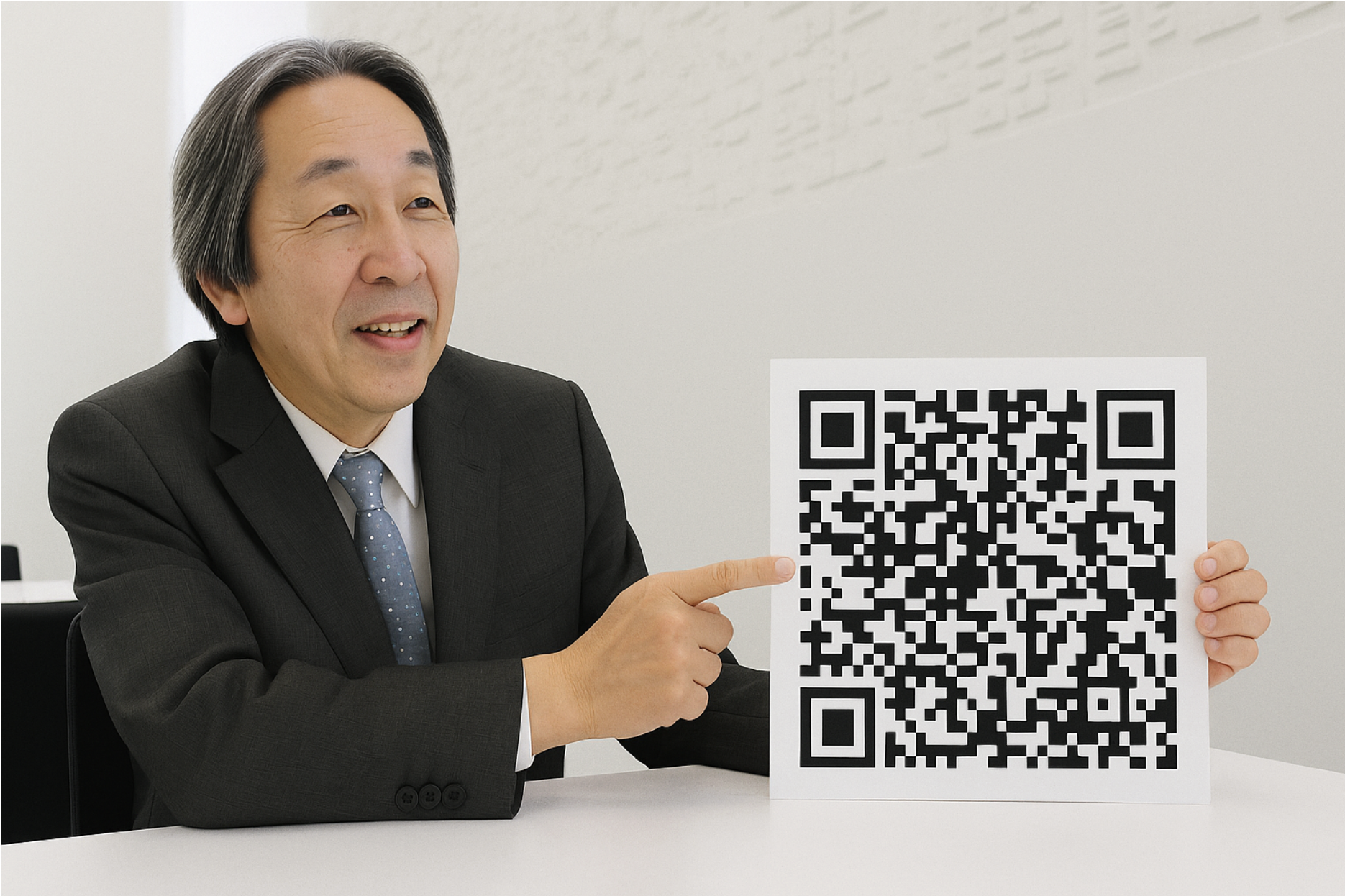Got a questions? support@encodelab.com
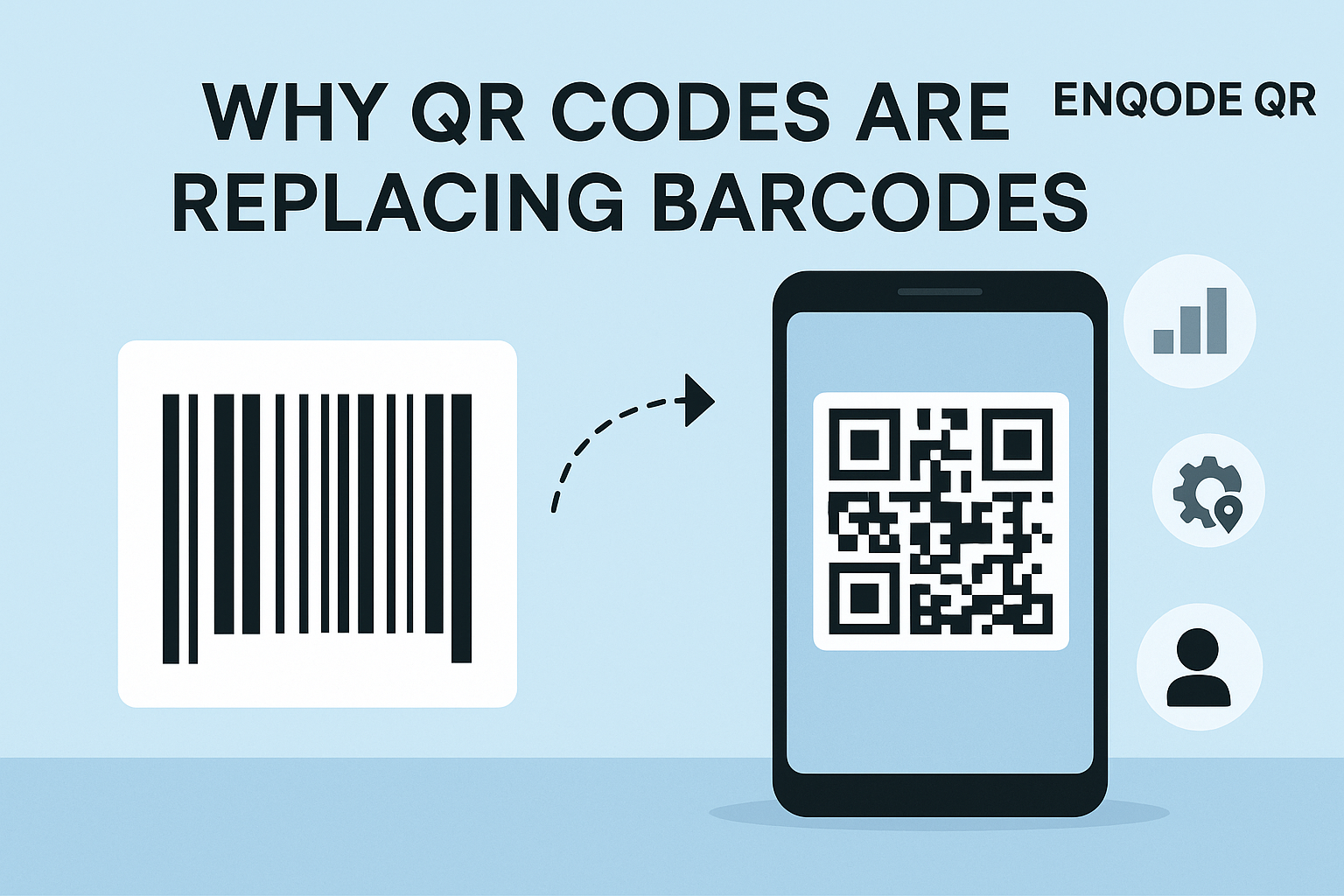
Introduction
Barcodes have been an integral part of product labeling and tracking for over four decades. From retail shelves to shipping labels, they revolutionized how we handle data. But now, a new technology is quickly taking over: QR codes. With the rise of smartphones, digitization, and the demand for smarter, interactive solutions, QR codes are replacing traditional barcodes across industries - and for good reason.
This blog explores why QR codes are becoming the new standard and what benefits they offer over barcodes in 2025.
What Are Barcodes and QR Codes?
Barcodes are one-dimensional (1D) visual codes made of vertical lines of varying thicknesses. They store limited information, typically numeric, and require specialized scanners.
QR codes (Quick Response codes) are two-dimensional (2D) codes consisting of black squares on a white grid. They store significantly more data, including text, URLs, contact info, and more. Most importantly, they can be scanned by nearly any modern smartphone.
1. Data Capacity: QR Codes Win by a Mile
Barcodes store up to 20–25 characters, typically numeric.
QR codes can store:
- Over 4,000 alphanumeric characters
- URLs, Wi-Fi credentials, payment info, vCards
- Even multilingual data and special characters
This makes QR codes vastly superior for businesses that want to convey more than just a product number.
2. Mobile-Friendly & Easy to Scan
Barcodes need a laser scanner, which means extra hardware and cost. In contrast, QR codes can be scanned with:
- Any smartphone camera
- Built-in apps like Google Lens or iOS camera
- Third-party QR code scanner apps
This mobile accessibility is crucial in a digital-first world, where consumers expect instant interaction.
3. QR Codes Can Be Dynamic and Editable
Barcodes are static - once printed, the data cannot be changed.
Dynamic QR codes can be edited anytime without changing the printed code. For example:
- Update a URL linked to a QR code on packaging
- Modify promotional offers
- Track scans and optimize campaigns
This flexibility saves time and money in marketing, logistics, and inventory.
4. Trackability and Analytics
Barcodes offer no data insights beyond inventory control.
QR codes offer:
- Real-time tracking
- Geolocation and device-based insights
- Click-through rate, scan volume, time of scan
These analytics give businesses powerful tools to optimize engagement, especially in retail, marketing, and customer support.
5. Smaller Footprint, Greater Impact
Barcodes stretch horizontally and take up more space. QR codes are compact, square, and can even be customized without losing functionality:
- Add logos, colors, and branding
- Embed them on product packaging, brochures, restaurant menus, digital screens, and even clothes
This makes QR codes much more visually adaptable and brand-friendly.
6. Better Error Correction
Barcodes are highly sensitive to damage — scratches or smudges can make them unreadable.
QR codes have built-in error correction levels (L, M, Q, H) that allow:
- Up to 30% of the code to be damaged and still work
- Functionality even if part of the code is blocked or blurred
This makes them more reliable for industrial, outdoor, and consumer-facing use cases.
7. Growing Support Across Industries
Major industries are transitioning to QR codes:
- Retail: Smart packaging and product information
- Healthcare: Patient IDs, prescription tracking
- Logistics: Real-time parcel tracking
- Payments: Contactless QR-based payments
- Restaurants: QR menus and order systems
As more industries adopt them, QR code infrastructure becomes standard, pushing barcodes out.
8. Cost-Effective and Eco-Friendly
Generating QR codes is free or low-cost. And since they’re editable, you don’t need to reprint physical material for updates. This:
- Reduces printing waste
- Lowers marketing costs
- Supports sustainability goals
How Enqode QR Powers the Future of Smart Codes
At Enqode QR, we’re at the forefront of this transformation. Our platform is built not just to replace outdated barcode systems, but to reimagine how QR codes can serve your business.
Here’s how Enqode QR leads the change:
- Dynamic QR Code Generation with full editability post-deployment
- Real-Time Analytics Dashboard: Monitor scan trends, locations, devices
- Custom Design Tools: Add your brand’s logo, choose colors, and export in print-ready formats
- Multi-URL QR Support: Direct users based on location, device, or language
- Bulk QR Creation for inventory, product lines, or marketing campaigns
- Developer-Friendly API Access for automation and integration into your systems
Whether you're a marketer, manufacturer, or enterprise, Enqode QR makes it easy to switch from barcodes to interactive, intelligent QR solutions that scale with your needs.
Conclusion
Barcodes served us well, but they are now being outpaced by QR codes in terms of speed, flexibility, and functionality. As businesses and consumers move toward a more connected, mobile-driven world, QR codes are proving to be the superior alternative - efficient, trackable, and highly customizable.
Enqode QR is here to help you make that switch. Try it today and future-proof your business with the smartest code on the block.

